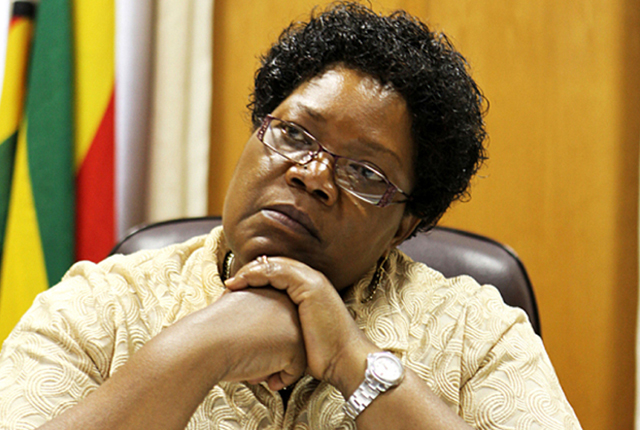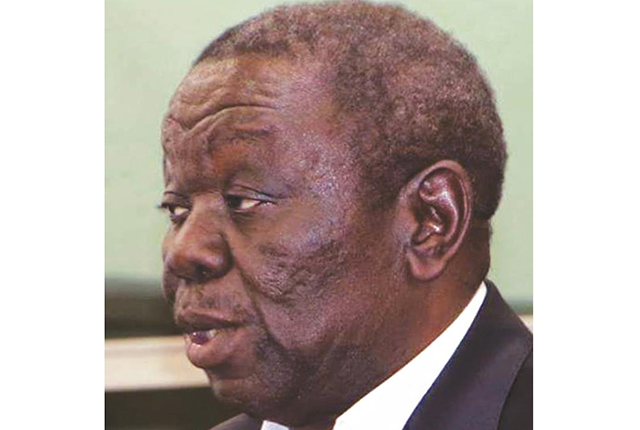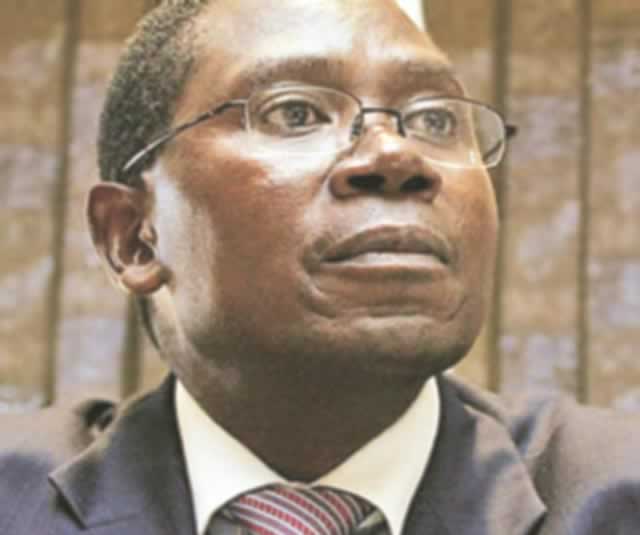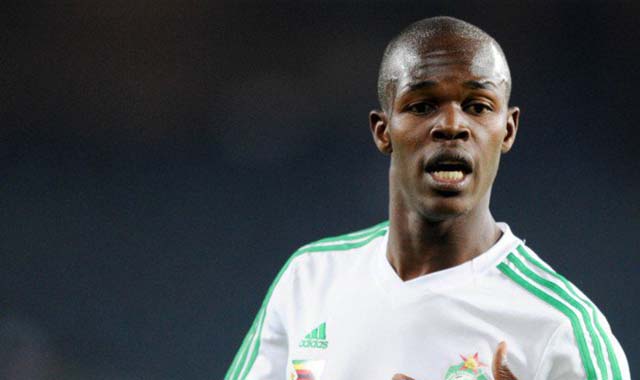Coalition of doom


Joice Mujuru
Reason Wafawarova Political Monday
It is simplistic and easy to narrate the history of Kenya when one is fantasising about coalition success stories; admiring the historic feat when the Rainbow Coalition fielded Mwai Kibaki as the sole candidate against KANU’s losing candidate Uhuru Kenyatta in 2002, who was to bounce back as Kenya’s President in 2013.
A coalition of Kanu dissidents led by Raila Odinga and 14 other smaller political parties came together to win 62 percent of the vote in the December 2002 elections. That marked an end to the 39-year reign of Kanu, and probably the death of one of the most prominent liberation movements of the colonial era.
The Mau Mau fighters were an inspiration for many liberation movements across Africa, and Mzee Jomo Kenyatta remains an indelible African legend who will always be remembered as a distinct nationalist among the founding fathers of independent Africa.
The death of a liberation movement is like the death of history, and that is why Zanu-PF must reform and survive the challenges of today.
Democracy of Zimbabwe without Zanu-PF is like the democracy of the United States without the Republicans, or that of the United Kingdom without the Conservatives.
For some simplistic minds here the mere fact that we have ZANU-PF dissidents like Simba Makoni, or the ones led by Joice Mujuru in her ZimPF outfit, as well as the fact that we have more than 14 other parties, is enough evidence that all one needs to topple Zanu-PF is a national coalition like what they had in Kenya back in 2002. How simplistic!
We cannot be as optimistic as to be stupid, or as angry as to be irrational, or as desperate as to be foolish. Fifteen weak parties do not combine their weaknesses to come up with some kind of strength. When one multiplies weaknesses they should logically get more weakness, not less of it.
A weak MDC-T joined by weaker splinters from itself and other splinters of weakness from ZANU-PF, as well as numerous other one-woman/one-man parties, will not in itself result in the breeding of a successful national coalition.
We hear Morgan Tsvangirai suggests that the “best” candidate should lead the envisaged coalition, which to me means the best among the weak should be fielded against the strongest the country has in its political community.

Morgan Tsvangirai
If one looks at the votes that Lovemore Madhuku’s NCA has been getting in the few by elections carried out so far, it gets difficult to imagine that such comical weakness can possibly multiply itself into some kind of strength by simply joining forces with other equally weak entities.
It was 19 votes here, 74 there, 92 there and so on; and we are expected to believe that all it takes is for such hopelessness to multiply itself into some enormous strength.
Zanu-PF still has the strongest mobilisation machinery in the country, by hook or by crook, and no one can take away that reality.
Youth mobilisation is essential in the Zimbabwean political terrain of today, and only Zanu-PF is meaningfully visible in this regard.
Tertiary students who once became the bedrock of opposition politics are trickling back to Zanu-PF, or simply engaging in their own initiatives of activism, far from the madding crowd in our opposition.
They are just sick and tired of being sick and tired of the confusion in the opposition, especially in the MDC-T.
Zinasu is out there fantastically frustrated in the eyes of a gleeful Zanu-PF, and it boggles the mind to imagine how an opposition that cannot keep its own affiliates would envisage itself in a position of successfully managing a national coalition.
That is the folly bedevilling Morgan Tsvangirai of the big tent delusions. The man keeps inviting all others to a non-existent “big tent”. Naturally no one has taken heed.
In its extremely fractious state, Zanu-PF has not lost its unifying ideological force, and every Zimbabwean knows that every opposition party in the country uses Zanu-PF as its unifying force. Every single opposition is driven by the delusion to remove Zanu-PF from power. That is the beginning and the end of opposition politics in the country.

Simba Makoni
Only Zanu-PF’s shortcomings can prop up the opposition in Zimbabwe. No opposition in the country has either policy or ideological strength to attract enough support to make a government.
This is why the run up to the Zanu-PF national annual conference in Masvingo became a national affair, a shared agenda among all political parties.
Everybody rubs off Zanu-PF politics at the moment, from its policies to succession, and even to its factions.
It appears there are more followers of the goings on in Zanu-PF outside the party than there are inside.
It is unlikely that an agreement over any form of national coalition against Zanu-PF will take place in the run up to the 2018 elections, not with the same hopeless characters we have known in the last 16 years.
Even if it were to happen, there is just no evidence that a combination or multiplication of our weak and confused opposition political parties would on any day command a majority voter following.
Zanu-PF is so ideologically entrenched in Zimbabwean political affairs that it is hard to believe that getting rid of the party will in itself bring a viable solution to the many problems bedevilling the country.
The country needs a transition involving Zanu-PF, and the level of involvement may be a matter of political debate. However, Zanu-PF is not threatened electorally, and the sooner this is realised the better for those who wish to win elections one day. Elections are not won by reforming legislation alone. Policy matters attract voters, not by the sweetness of the law.
Differences of opinion are an advantage in a democracy, and it is just as good that we have the Madhukus, the Ncubes, the Mujurus, the Makonis, the Bitis and the Dzinemunhenzvas of this world — all anchored in the common denominator of perennial losing to a seemingly indomitable Zanu-PF. None of them came to the people on the strength of merit, choosing rather to come to the people as mere critics of the incumbent rulers.
These many political parties in our country perform the office of the Censor morum over our collective political system, and that is good for our democracy.
We would not have Biti’s PDP and Mangoma’s outfit if uniformity of purpose and ideology was a factor in the way we run our politics. The two would still be stuck with the client politics at the MDC-T, telling us all that Morgan Tsvangirai is the best thing ever to be given to Zimbabwe by God.
We have to understand that diversity comes with huge challenges and problems. Millions of innocent men, women and children have been burnt, tortured, imprisoned or persecuted since the introduction of democracy in the Aristotelian era, yet humanity has not advanced one inch towards uniformity.
Not even within local political parties will uniformity ever been attained. Factionalism is more natural than uniformity and conformity, and factionalism is across the political divide; only more dramatic in some parties than it is in others.
We are 14 million in Zimbabwe. We profess maybe 14 different ideologies and political systems. So yours and mine are but one of that 14. If we believe that there be but one right, and that our idea of patriotism is that one right; we should wish to see all the other 13 wandering political sects gathered into the one set of truth.
Have we not been accusing each other of not being patriotic enough, of not being democratic enough, and so on and so forth? Have we in reality become more patriotic, more democratic, or more sovereign? How are we going to convince the wrong majority that our right is the way to go, or even the wrong minority?
Against such a majority we cannot effect change by force. Only reason and persuasion will work as practicable instruments.
We must indulge in free enquiry, and we cannot wish others to indulge in what we ourselves refuse to be part of.
We need national consensus on how to rebuild Zimbabwe, not on how to make sure the country is ungovernable. These self-anointed human rights defenders fomenting trouble all over the place for the mere object of impressing observing foreigners will never do us any good.
They are a danger to the idea of developmental progress. They are a danger to the national cause. They are a danger to themselves.
It is not an achievement to celebrate the failure of an incumbent government, and our political activists must understand this.
We cannot envisage a better Zimbabwe founded on a coalition for votes, or a coalition for the defeat of one hated political entity.
Only a coalition of tolerance and diversity will endure the test of time.
Zimbabwe we are one and together we will overcome. It is homeland or death!
Reason Wafawarova is a political writer based in SYDNEY, Australia










Comments